News Grille
XXX. VIII. XX
An fnbworld {news for soul}
Exclusive interview/Robert Martin (Bobby)
VOCALIST-MUSICIAN WITH
GUSTO!
By Ravi V. Chhabra
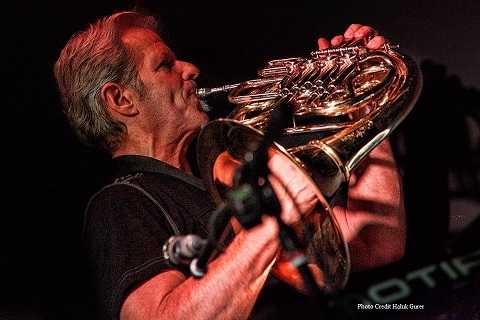
Besides the numerous musical instruments that he plays professionally – piano, keyboards, saxophone and all wind instruments, Robert’s vocal range, sheer forceful expressiveness and sensitive ears make him among the rare breed of singers.
Adept at both breathtaking lead vocals and arranging and performing tight, crisp background vocals, in addition to being a top call session singer for two of the biggest advertising contractors in L.A., Robert recorded his own album on MCA Records and majorly as a song-writer.
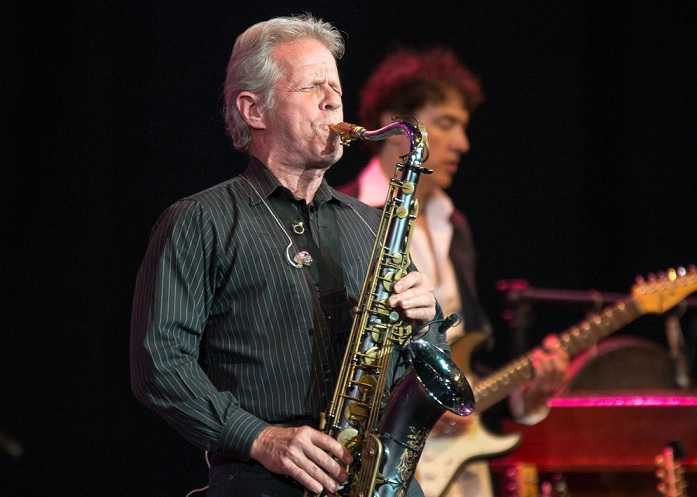
Etta James was a strong vocal mentor encouraging him to sing with her in all their live performances over a period of 15 years. He handled both lead vocals and high harmonies on numerous tours and recordings for Frank Zappa, including an iconic reworking of the classic Allman Brothers anthem, Whipping Post. He also sang all the high harmonies on tour with Michael McDonald, combining with Michael’s range and power for the top end of a tight, soulful vocal ensemble.
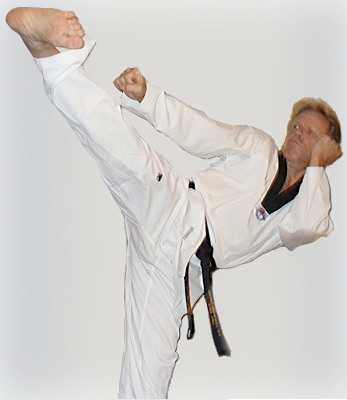
Sensei Robert Martin ( he is also a black belt in Tae Kwon Do)
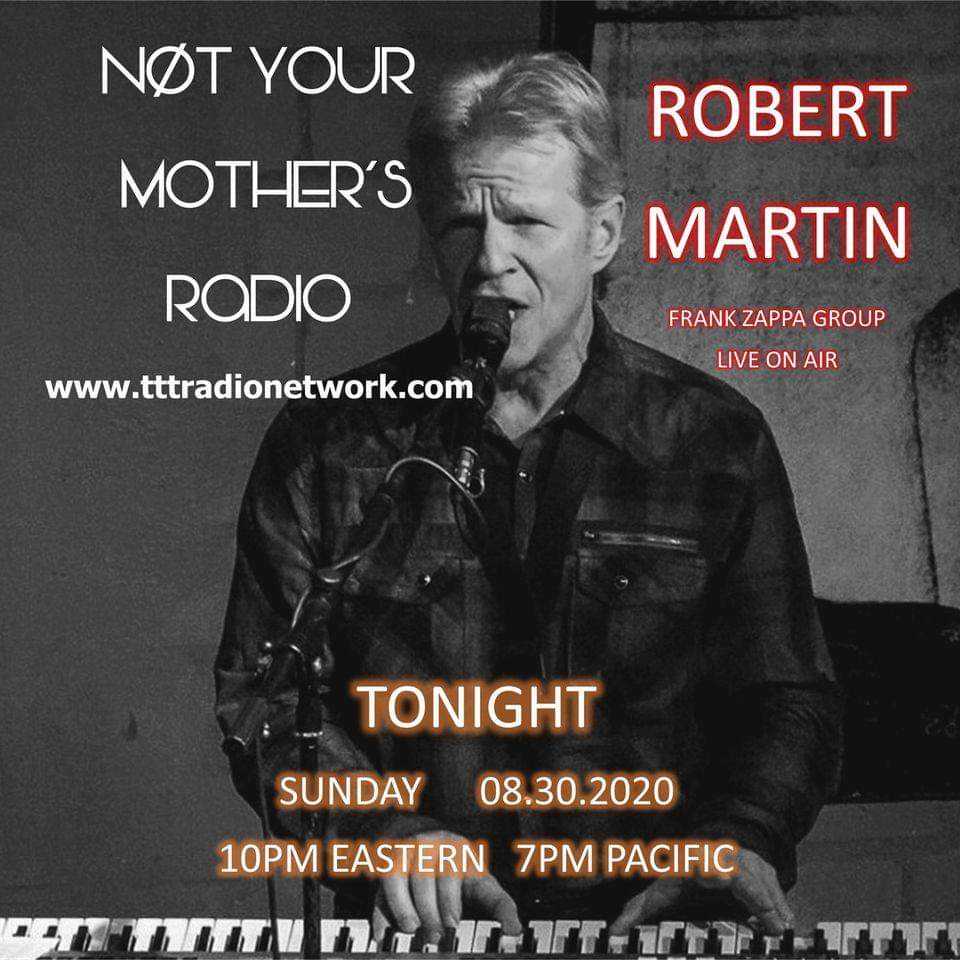
Ravi V. Chhabra: Who has been your major influence as a vocalist, reasons?
Robert (Bobby) Martin: My biggest influence and one of the earliest was Ray Charles. I first heard him on the radio in 1957 when I was 9 years old and immediately became a Ray Charles “freak.” Although the sound of my voice is not like the sound of his, and I never tried to make myself sound like him, my feel for phrasing, dynamics and expression are largely influenced by my boyhood exposure to his genius. His uninhibited, fluid, and I would even say daring vocal style, especially on the 1959 album Ray Charles In Person, set the bar for me in terms of the expressiveness I wanted to achieve as a singer. I literally wore that album out and had to get a replacement copy. I still have it on vinyl.
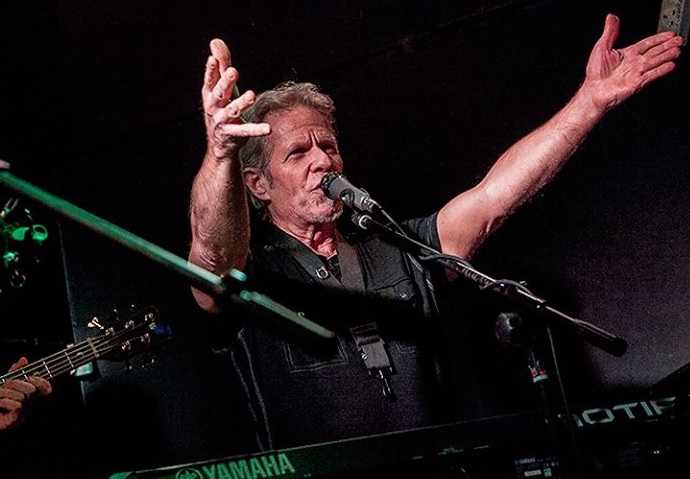
RVC: Being a multi-instrumentalist, where did you learn to play a range of major musical instruments like keyboard, alto-saxophone, French horn etc?
RM: My parents met as opera singers, so I grew up hearing all kinds of music every day.
When I was 3 years old, I taught myself to play piano, which became the foundation for everything else. Growing up, we had a Lester spinet in the living room, and even though I was too small to even see the keys, I would reach up and play them and figure out melodies by ear and by feel.
In third grade towards the end of the school year, all students were given a variety of tests, including music, to see in what areas their aptitudes were. I was the only kid they ever had who “aced” the music test and got everything right, so they said, “Give this kid a French horn,” the most difficult orchestral instrument to play. So the following fall, I started on the horn at age 9 in the fourth grade.
“When other kids might ‘cut class’ at school, I would actually cut recess, sneak back into school, go to the band room, pull instruments out of their cases and figure out how they worked. By the end of elementary school, I had taught myself to play all the brass instruments”.
The next challenge was woodwinds. I had developed a special interest in tenor sax, because Ray Charles had a tenor player named David “Fathead” Newman whose tenor playing blew me away. It was just the coolest sound I had ever heard, and I said to myself, “I gotta make that sound.”
My junior high band teacher was an old school big band alto player, and I worked him and worked him to get him to give me a saxophone. He was reluctant because he was afraid he would lose his best French horn player, but I finally convinced him I could do both. In June at the end of 8th grade, he gave me a tenor and a book with the fingerings, and I taught myself to play over the summer. A couple of months later, I started playing gigs on tenor at age 14.
RVC: Where was your last live concert and the line-up, have you also performed at the Zappanale?
RB: My last live concert was last year (2019) at The Baked Potato in L.A., with what we now call The Zappa Band, essentially the group that played the Hologram tour in 2018. The original line up was Mike Keneally, Scott Thunes, Joe Travers, Ray White, Ed Mann and myself. The new line up has Jamie Kime replacing Ed Mann, with everyone else the same.
I never knew the Zappanale existed until 2009. I played there every year from 2009 through 2012, performing with various groups. Then in 2013 and 2015 we headlined the festival with Banned From Utopia. I haven’t been back since, but we’re in discussions to headline again in 2021 with The Zappa Band.
I love playing at the Zappanale. The organizers are wonderful to work with and the fans are the best.
RVC: How and when did you meet Frank Zappa and your favourite memories of him and of his family? Did you go to FZ’s house in Laurel Canyon?
You can hear a growing library of Robert's compositions on his Bandcamp page, here: https://robertmartin3.bandcamp.com/
RM: In the late 70’s I was in a successful band from Woodstock called Orleans. The man who headed up the tech crew for the band was Dave Robb, who later became Frank’s guitar tech. When Frank was putting the band together for his 1981 tour, he was having trouble finding the right person for the last spot in the band, and Dave told him about me. Long story short, I won the audition, joined the band, and life would never be the same!
"I went to Frank’s house a number of times over the years, especially shortly before he died. He began having “Marguerita Nights” on Fridays, and I met the Tuvan throat singers at one of those gatherings. I have fond memories."
I met all Frank’s kids when he brought them to rehearsal, and could see that Frank loved his kids and they loved him. Diva would sit on one of his feet and he would walk her around the room on his foot, with her smiling and giggling all the while. My own dad used to do that with me, so it was a joy for me to see Frank do that with Diva.
RVC: Have you played with or watched Dweezil perform?
RM: Dweezil first sat in with us at the London Palladium when he was 14. I saw him years later with his own band, about 2007. He’s always done a very good job of accurately duplicating the original recordings of his dad’s music.
RVC: Your all-time favourite musical band?
RM: I’ve seen and heard so much incredible music over the years, I can’t name just one. I saw the Beatles live, I saw Hendrix live, Ray Charles, Cream, Traffic, Miles Davis, Cannonball Adderly, Dizzy Gillespie, too many greats to list. I got to play with many artists who influenced me when I was just a youngster, including, of course, Frank Zappa.
RVC: What do you listen to in your leisure time?
RM: I have tons of great music on vinyl, classic R&B, jazz, classical, I love Rachmaninoff, Mahler and Stravinsky. I also really enjoy some of the brilliant new players coming up, like Cory Henry and Jacob Collier.
RVC: Are you in touch with any former Zappa musicians like Napoleon Brock, Ray White, Ike Willis, Ponty or Fowler brothers?
RM: I ran into Napoleon ten years ago at the Zappanale, which was the first time I’d seen him in over thirty years. I’ve been performing often with Ray for the last eight years or so with Banned From Utopia. We love singing together. Ed Mann remarked recently, “Those two guys are mind-melded.” Albert Wing and Tom Fowler were often on those tours with BFU. I also ran into Ponty a few years back at Zappanale when he performed with George Duke. I’m currently singing, playing, mixing and co-producing a project with an Italian band called X-Jam on which both Ike and Ray are also performing.
RVC: Your future musical plans?
RM: I have a backlog of compositions that were recorded back in the 80’s with the limited technology available for home recording back then. I can finally record them with high quality sound in my own studio now, so I’m slowly but surely building up a library of recordings on my Bandcamp page. Also very much looking forward to next summer’s tour with King Crimson and the Zappa Band.
RVC: What is the future of live concerts in terms of the present pandemic crisis and the overwhelming use of electronics and music scene in general?
RM: Live performance is pretty much shut down for the time being, but I have no reason to believe it won’t be back fairly soon. We had a tour with King Crimson and The Zappa Band scheduled for summer 2020, which is now being rescheduled for summer 2021.
I use electronics in live performance now to allow me to create sounds that used to require large, heavy equipment like a Hammond organ or grand piano. Now those sounds are available right in my laptop with incredible quality and none of the drawbacks of the old equipment. And yes, they sound every bit as good, and in some ways better than the old equipment when amplified through a concert P.A. system.
RVC: Your favourite musical genre and female jazz singer?
RM: To me, jazz and classical are the two most highly developed and challenging forms of music. Both genres are well represented in much of Zappa’s music. I practice both styles daily in which I focus on four disciplines, voice, horn, sax and keys.
As for female jazz singers, I saw many of the greats in live performance in the 60’s, Sarah Vaughan, Carmen McRae, Ella Fitzgerald and more. There’s one though that holds a special place for me, although she was more of a blues singer than pure jazz. I worked with the great Etta James off and on for fifteen years. After my Zappa audition, Ray White came up to me and asked what church I had been hanging out at. My immediate answer was The Church of Etta James. She was an incredibly generous mentor to me, always encouraging me to sing with her. That was a PHD level education.
RVC: A routine day’s sketch in the life of Robert Martin?
RM: I get up at 5 am every day and immediately do four rounds of high intensity interval training (kettlebell swings, burpees, etc.). Then I go out for a two mile walk at a forced pace with long strides, finishing before the sun comes up.
After my walk, I do a 20-minute TM meditation followed by a cold shower. Then I’ll do some studying, often positive mental programming or Objectivist (Aristotelian) philosophy. Then it’s time to practice, usually horn first, then voice, sax and keys later in the day. I’ll probably get some mixing in for a bit before my first meal of the day. I don’t eat until noon at the earliest and stop by 8 pm at the latest, eating two solid meals a day, no snacking. I generally do a bodyweight strength workout at 4 pm. I go to bed at 9:30 for 7 1/2 hours of restful sleep.
If all this sounds too austere or stoic, I find it a very enjoyable way to live, even fun. I intend to live well past 100 years and will never “retire.”
_________________________________
https://en.wikipedia.org/wiki/Robert_Martin_(singer)